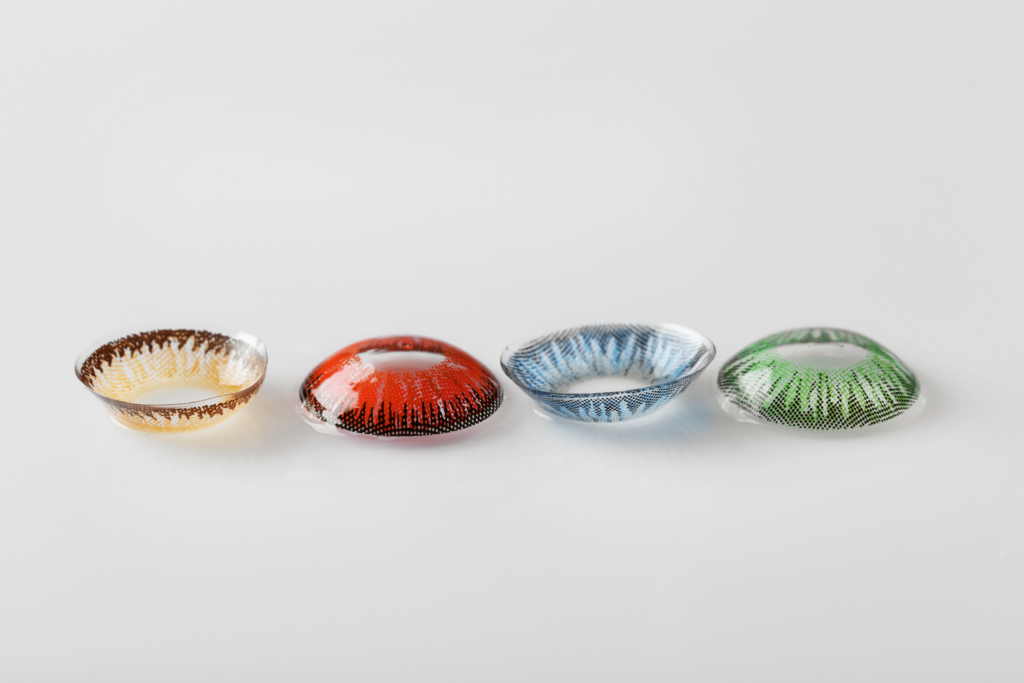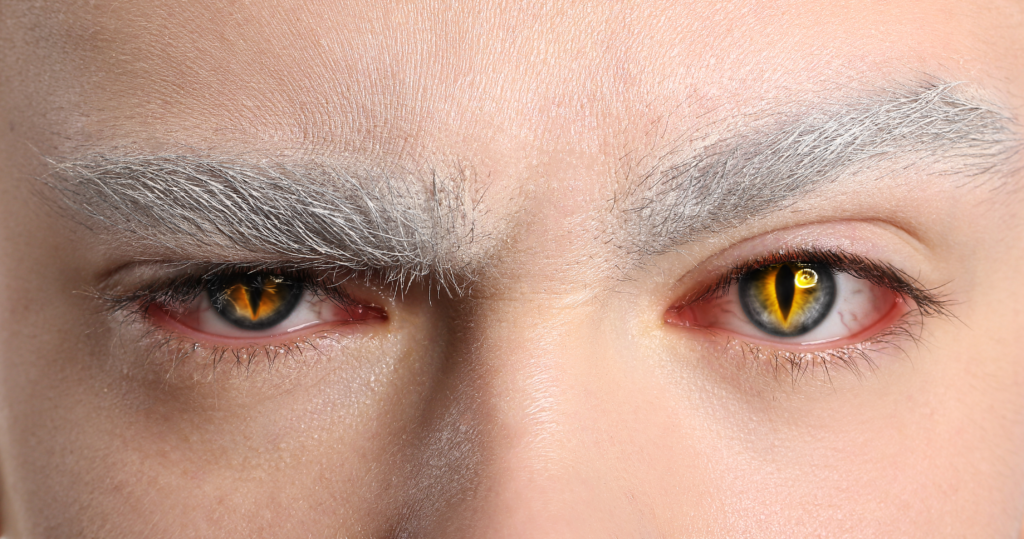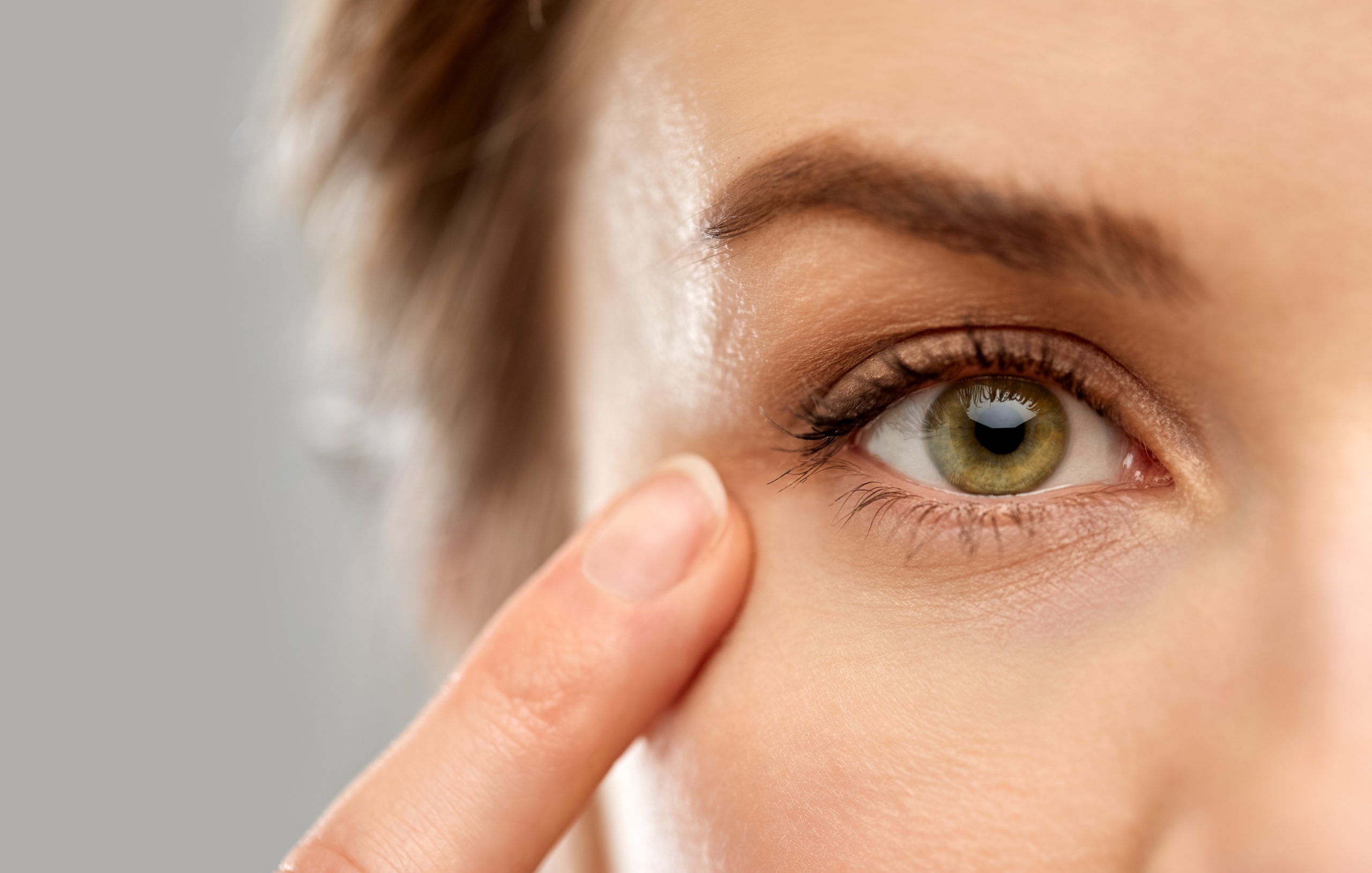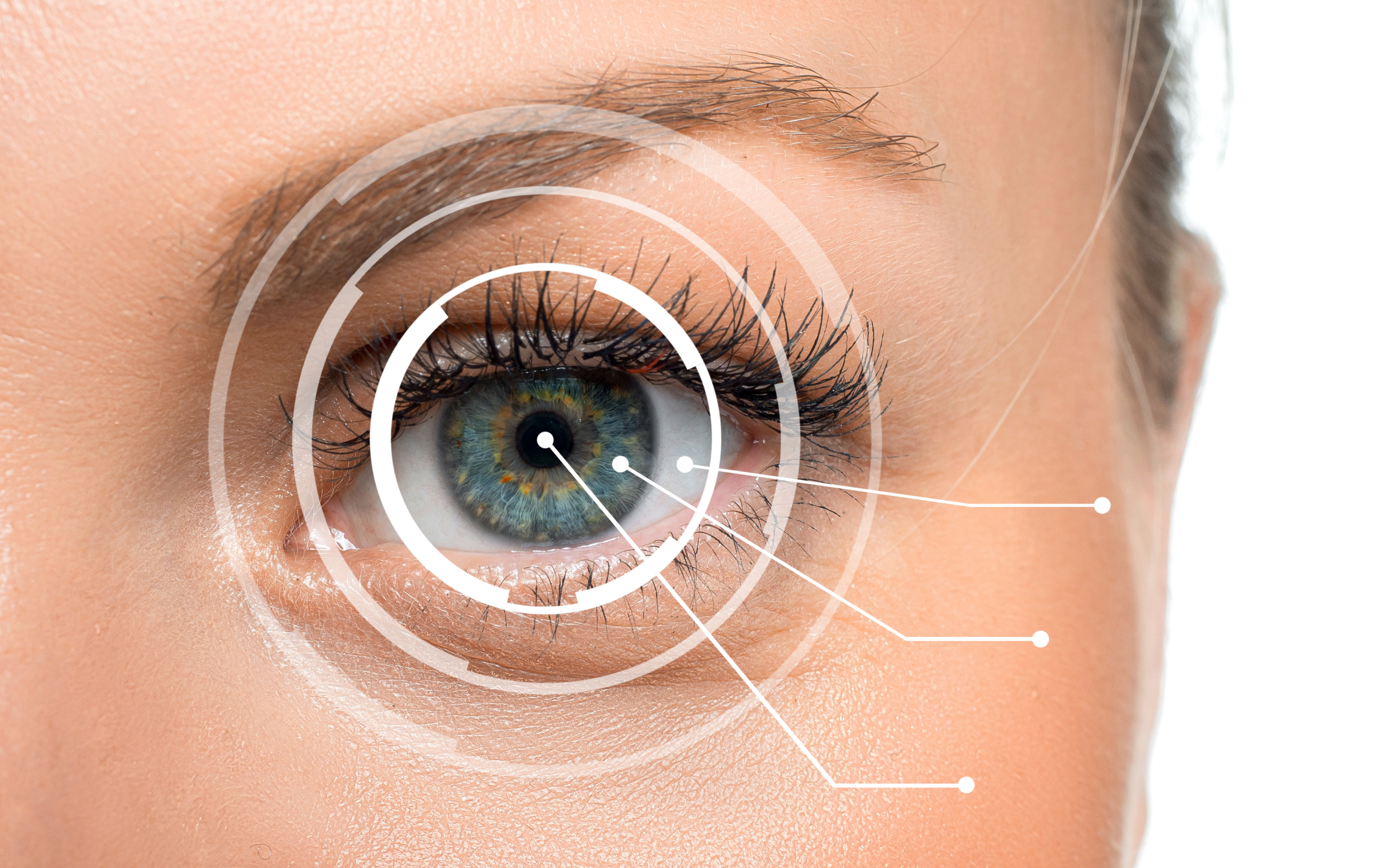
Wanting to find the perfect pair of coloured contact lenses to compliment your Halloween costume this year? Want your eyes to look blood red or deepest black for that demon look you are after?
Here are some good safety measures, and some advice about cosmetic contact lenses.
Are contact lenses medical devices?
All contact lenses are medical devices. Even coloured contact lenses that don’t correct your vision, are still medical devices. For this reason, you need to take care when using them and follow the instructions closely. In some countries, the sale of cosmetic or coloured contact lenses is only legal with a signed prescription from your Optometrist.
Contact lenses are designed to be placed on the outer surface of the eye, on the cornea. The cornea is a transparent layer of tissue that has to have the perfect balance of moisture and thickness to allow clear vision. It also has a very thick arrangement of nerves. These nerves become very sensitive to pain and light if the cornea becomes damaged. Which can occur from improper use of contact lenses.

What are contact lenses made of?
There are multiple different types of plastic depending on the type of contact lenses. “Prescription contact lenses” are those that correct your vision. The companies that make prescription contact lenses, spend millions of dollars annually to research and develop materials that reduce the negative impact of contact lenses on the cornea. These newer materials are designed to offer better hydration and better comfort. As well as allowing more oxygen to pass through the material.
Those designed purely for cosmetic effects and for short-term use, do not have access to the same type of research technology. These companies use contact lens materials that are older and less advanced in their design and materials. They might add new colours or new designs to their ranges, but these changes are just to the coloured treatment they place on the outer surface of the contact lens. The material these cosmetic contact lenses are made out of rarely changes.
These older contact lens materials are thicker, stiffer, drier and less capable of allowing oxygen to pass through them.
A thick or stiff contact lens will rub against your eyelids and your conjunctiva (the white of your eye). This rubbing effect is irritating. For some people, this irritation develops into pain, redness and abrasions on the eye or eyelids.
If a contact lens restricts the flow of tears or oxygen to the eye beneath it, it becomes less comfortable to wear and increases your risk of an eye infection. Infection or severe inflammation of the cornea or the tissues around it can lead to irreversible damage. That can sometimes cause a loss of vision.

How can I safely wear cosmetic contact lenses?
- Book an appointment to see your local Optometrist, and take your cosmetic lenses to that appointment, so the Optometrist can check that they fit your eyes in a safe way.
- Use a lubricating eye drop before putting the contact lens on your eye.
- Use lubricating eye drops every hour the contact lens is in your eye.
- Remove the contact lenses at the first sign of irritation, redness, blur or if you develop a discharge or wateriness. If the irritation persists after removal, seek medical advice.
- Do not wear any contact lenses if you have not been shown how to insert or remove them by a professional.
- Do not wear any contact lenses if you have cold or flu-like symptoms.
- Wash your hands thoroughly and carefully before touching the contact lenses or your eyes.
- Do not share contact lenses with other people – even if you have cleaned them with the appropriate contact lens cleaning solution.
- Make sure you buy the appropriate contact lens cleaning solution and storage case for your contact lenses. Never store them in any sort of water!
If you’ve read this far then you must know the importance of looking after your eyes and eyesight! Check out some of our other blogs on eye health:
Why You Shouldn’t Rub Your Eyes
Vitamins for Good Eye Health and Vision
Sleep and the Effect on your Eye Health
What’s the deal with sunglasses?
If you have any questions get in touch, we’d love to help!
If you’d like to learn about laser eye surgery then check out our other blogs about LASIK or SMILE surgeries. You can also book a free assessment or call us on 0800 733 327 for more information.

Marijuana’s effect on the eyes

Festive Season and Your Eyes

Vitamins For Good Eye Health and Vision

Help my eyelid is twitching!

Do you need to have eye exams after laser eye surgery?

What is PRK or Photorefractive Keratectomy?

Marijuana’s effect on the eyes

Can I have laser eye surgery if I’m pregnant?

What Can Go Wrong During Your Laser Eye Surgery?

